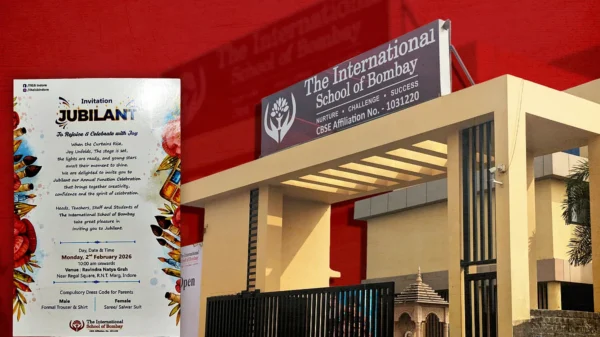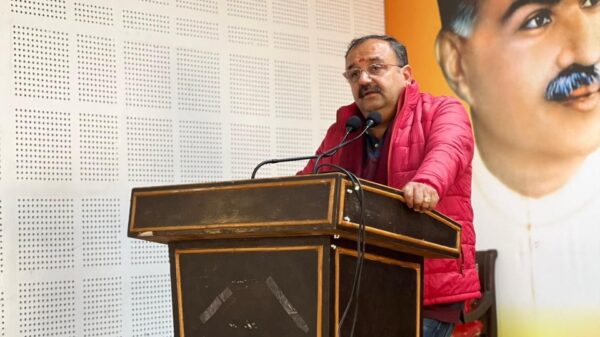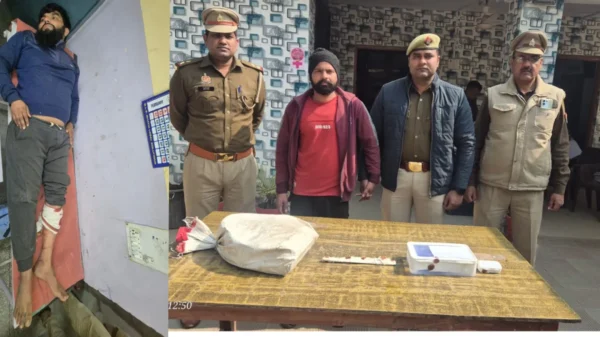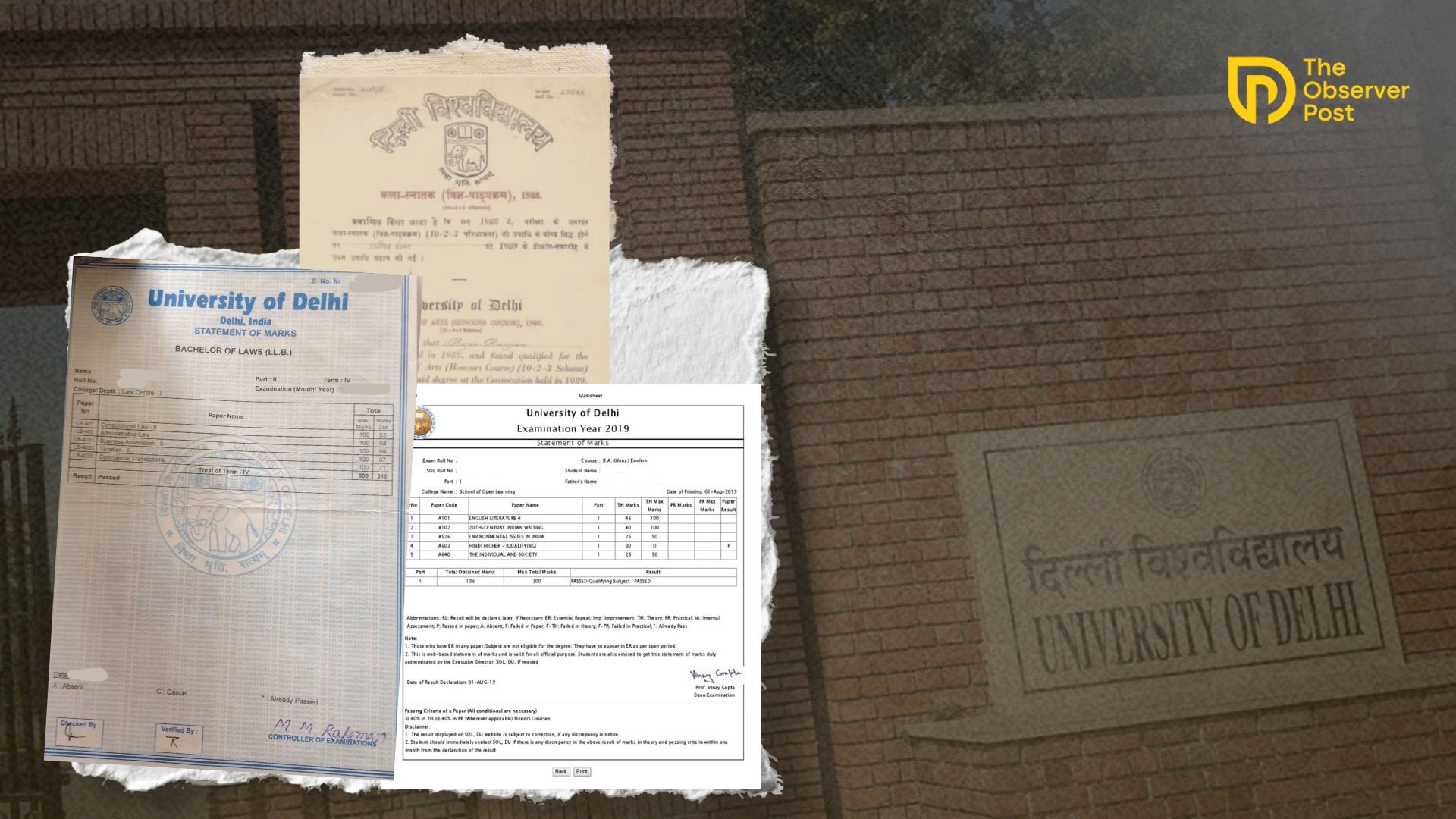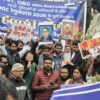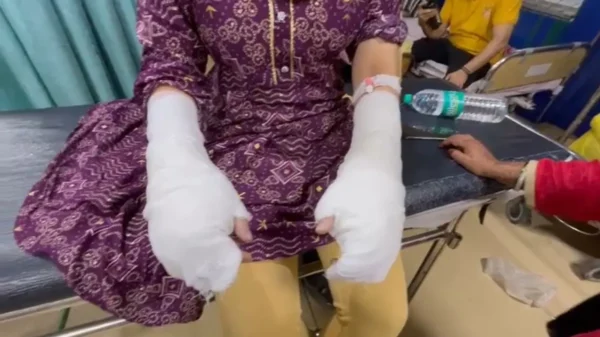By Mohammed Saad & Azib Ahmed Sheikh
Delhi University is among the most reputed universities in India and is ranked a staggering 4th rank in the latest NIRF rankings. It is renowned for its academic excellence, diverse programs, and rich heritage. The consistent ranking of colleges affiliated with DU, among India’s top institutions, is a testament to its fostering intellectual growth and research innovation. Accolades of the institution apart; students (mostly) with bachelor’s degrees from various colleges of DU have been facing a crisis for years.
The issue lies in their marksheets — the marksheets that incorrectly portray their grades’ transcript as earning an ‘F’ (Fail) and their result as ‘ER’ (Essential Repeat). As is known, a course requires that the student fulfils the coursework and secures, if nothing else, a ‘passing grade’ in the qualifying examination, that determines the conferring of a ‘degree’ of completion of the respective course. Here at DU, a huge number of students, those who were enrolled, completed their course requirements and appeared for the qualifying exam have secured an ‘F’ mark, which indicates a ‘fail’. Essentially, it says that the student has not been able to make the grade and has failed to succeed in the evaluation.
Does this raise eyebrows? Yes! Why has the student, a prime ‘scorer’ of earlier semesters, terribly failed in the subsequent semester? Why only single or two papers has he failed, when he aced the rest with excellent grades? Why, when a student was present in the exam, did his transcript depict ‘Ab’ (absent)? Where does the problem lie and what checks and balances are in place? This article seeks to answer these promising questions, by speaking to the students, standing in a long queue, at the administrative office of DU.
Student Woes
Transitioning into a new phase of life, and facing a setback as big as failing to secure admissions due to errata has been a heavy blow. Sahil*, a student of B.Com at Zakir Hussain College, has spent more than 5 months waiting for the re-evaluation marks, as two of his papers had ‘F’ (Fail) & ‘ER’ (ER). Citing illegibility to get admitted, he was denied admission, irrespective of his name appearing in the very first list of entrance results at Jamia Millia Islamia, for his cherished programme. Ajay*, who was eligible to secure admission at Central Universities with his CUET score, dejectedly says: “I was eligible with CEUT score and all, but, I didn’t apply. Because of the ER only, I didn’t apply. Like, I thought it was a waste of money, actually.”
Iram*, a 2nd-year student of law at DU, present at her exam, received an ‘Absent’ mark in two of her papers. “I have taken the exam but still the college has marked me absent. The paper was Administrative Law, LB402. I have taken the exam. I have given the application to the college. They have given me a copy of my attendance sheet. It is written that I was present. My signature is there. I have submitted my form in the examination block.”
A jolt to student aspirations
So, what is the option for students who have errata, you ask? Students say, repeating the exams next year is what we are doomed with. “
“There is no point in applying for revaluation. I had one error in the 5th semester. So, the alternate is only I need to appear for the ER examination this December. And I have to apply for that, by fee payment“, says Ajay*, adding that he is doing an online diploma from IIT Madras.
“Now, Should I go to my home place or should I wait here? So, it is uncertain what to do. So, that is making me a little weak” says Sahil* droopingly.
“I am not that much resilient. As this is the next phase in our career, this is a very crucial time. 21 plus age. So, at this time, such a situation in my life will be very…” his voice trailed off.
An astonishingly long gap of a year, to be able to appear for a re-exam, has turned students weary of their future aspirations. Judging by circumstances, the mental toll on students is immense, as such errors not only lead to confusion and frustration but also create unnecessary stress, impacting their future academic performance and overall well-being. Aspirations of parents, too, by all accounts seemed to meet accidentally a dead-end, upon discovering ‘backlogs’ of their meritorious wards.
The re-evaluation & re-examination saga
Apart from the dismay and disappointment, the students face a re-evaluation saga, which they are proposed or suggested to undergo. The first battle is to confirm their marks, in-person with the examination section. If the battle is lost, the second, or the suggested battle, is to apply for re-evaluation. This battle involves dishing out money for application, which is not inexpensive.
A student of North Campus, Bhagya* commenting on this, says, “We’re often left wondering where our marks were deducted. To find out, hundreds of us, at Delhi University, apply for revaluation or rechecking, but the process is extremely cumbersome and sometimes costs us an entire academic year. I filed an RTI request at the Examination Branch Office, North Campus, to get my answer sheet. They said I’d get it within a month, but many of my classmates haven’t received theirs even after three to four months of filing similar requests.”
The third, and the unjustly long, battle is to appear for the re-exam, the next year.
Ameen*, a student of St. Stephen’s College, completed his degree after re-appearing in the two papers, he was termed ER. But, this came with a gap of 2 years of disinterest and parent’s pressure for completion.
“My parents eventually got to know that I had failed. I started working as a content writer, back from home. After two years, my parents forced me to complete my degree and asked me to pursue UPSC. They have hope in my capabilities,” he says.
Iram*, who took a different course for resolving her issue, says: “They have said that it will take a month. So, it will take three years to complete my form. There are many students with whom this has happened in my class.”
Not being superficial and naive in considering this gross ‘congruent’ error of ‘so many’, we may seek to know the larger issue that leads up to this organised clanger, i.e. the DU’s examination setup.
The DU Setup (as narrated by respondents)
Delhi Univeristy has a centralised semester exam process, for which the university drafts question papers for student assessment. Responded answer sheets, of all affiliated colleges are then evaluated in the University premises. Subsequently, the transcripts of mark sheets are provisioned in the examination section, a copy of which is available online for students to check out their marks.
During the manual entry of transcripts into the online system, certain data gets omitted, resulting in errors being displayed in students’ mark sheets, the students complain.
How much recognition the issue receives from the DU administration and how DU steps up to resolve it remains a mystery!
Fee Payment or Financial Malfeasance?
In his quest for justice, Sahil* enquired one of his professors (department & name undisclosed) — how come, when he has enough internal marks to qualify the paper, with the only additional requirement of satisfactory responses to 2 or 3 questions? The response he received is as follows: “Many students get good internal marks. The problem is with the same paper (the same paper that you have failed). For some, another paper. I don’t know. You have no other option, just give for (re) evaluation”.
When such directed responses of ‘no other option but to apply for a re-evaluation’ are hastened, it necessitates a discussion on & investigation into the fee-payment matters.
“No Institution shall charge capitation fee in any form or manner, whatsoever,” the regulations of UGC state regarding capitation fees, which were deemed illegal by the Supreme Court in 2016. Then, is this a new form of profit-making, given the existence of UGC directions?
As is evident, though committees have been set up to regulate fees, and prevent the charging of capitation fees, how could one possibly assess or recognize malpractice or profiteering in overcharging or falsely charging (for the sake of re-evaluation, despite error from university) remains an unanswered question.
Administration Response
Our query to the examination section remained unanswered, as the officials refrained from making comments. However, one of the employees, who does back-end work & computer work, affirmed that “the likelihood of errors in manual entry cannot be disputed”.
Recounting the administration’s response when Sahil* approached seeking help, at the time of his name appearing in merit lists of Pondicherry University & Jamia Millia Islamia for various courses, Sahil* narrates: “They, did not say, or, they did not talk in a, transparent way. There was a mistake on their side, but, they did not answer. Even after, I told my situation, I got (eligible for) admission, I got, admission in Pondicherry, I got admission in Jamia, they, they did not, took this as, their concern”.
Ajay* remarks on the same: “So, it’s not like our home. There is not much chance. In my home place, or some other places, or some other universities, they would have taken it. But there is no hope from the DU people. There is no point in applying for revaluation. Like they are not getting us seriously, the department, the administration.”
“The results for my 6th-semester exams were released on September 10th. I had to reappear for a labour law subject that I had failed during my 4th semester. While I got ‘distinction’ marks in all my 6th-semester subjects, I failed again in that same labour law subject. I’m confident the issue is with the examination department”, mentions Bhagya*.
Proving the point
But all this is unsatisfactory, some say, to prove this point (as a real-existing issue). It could well be debated whether these cases are genuine. It could further be argued whose mistake would it be. Fine. But, let’s take this into account! Is it not convincing that a student who has aced all exams in his whole degree, save one, raises a question? What may be the cause? Why did s/he fail in one paper alone?
Moving ahead, let’s discuss Sahil’s* case. Sahil* had applied for a re-evaluation of one of his papers, the acknowledgement copy of which has been attached below.
The DU’s process of publishing the re-evaluation results is as follows. Two lists, one of, the applicants with a subsequent change of grade post-re-evaluation; and the second of, the applicants retaining their earlier grade post-re-evaluation.
To his disbelief, his name did not appear in both the lists, for which he enquired, and received a negative response.
“After a few days (of receiving the re-evaluation results on the website), when I went to the revaluation branch, they told me that my results were published, but not published in ‘the site’, and there is no change in my result,” says Sahil.
This brings to the question, that when DU has a formal process of re-evaluation — online form submission for processing the request, a formalised fee-payment gateway, and the results published at DU’s site — then how would, a passing and transitory remark ‘qualify’ as a formal, consistent, and reliable source of information for the applicant. Does a student, who has paid for the process, not deserve, like others, to be informed about the results, accurately? Reliably?
Similar, but also unique & utterly disbelievable is the story of Saniya*, a student now enrolled for a master’s programme at Calicut University. Saniya* completed her bachelor’s in 2022 and completed the degree. Discontented, she decided to re-attempt two papers from her 6th semester for the sake of improvement. The result was a thunderstorm in her life, she says, as the results reveal an ‘F’ in both the papers. “
“I wrote both the papers just for the sake of improvement. I already had good marks. I wrote it only for better marks. But, this is very disappointing. For my master’s, the degree certificate I have submitted from DU says I’ve graduated, but, the re-attempt has brought problems for me!”, she grieves.
Further, Bhagya* argues: “It’s not unusual to see students who studied only for a night or even those who had failed in previous years getting higher marks than those who consistently perform well throughout the year.”
The Elections
In the muscle & money principled carnival of elections, sadly, this year too, like the previous years, this didn’t come up as an ‘issue’. The contesting parties as well as the contenders were indifferent to these concerns and responded dispassionately “That’s not how the elections are won!”. It seems, that in the unfair game, the students are at the losing end.
What lies at the roots of this issue requires thorough enquiry. Are re-evaluations & re-examinations official gateways for racketeering, that rationalise and legitimise, and subsequently formally authorize the university to solicit & endorse the manoeuvre? Shady practice? Gross Error? Irresponsibility? or Not? All this should be concluded only upon detailed scrutiny, and not mere namesake ‘grievance redressal’.
DU should live up to its repute, by addressing the issue swiftly, diligently & responsibly.
*names changed.







